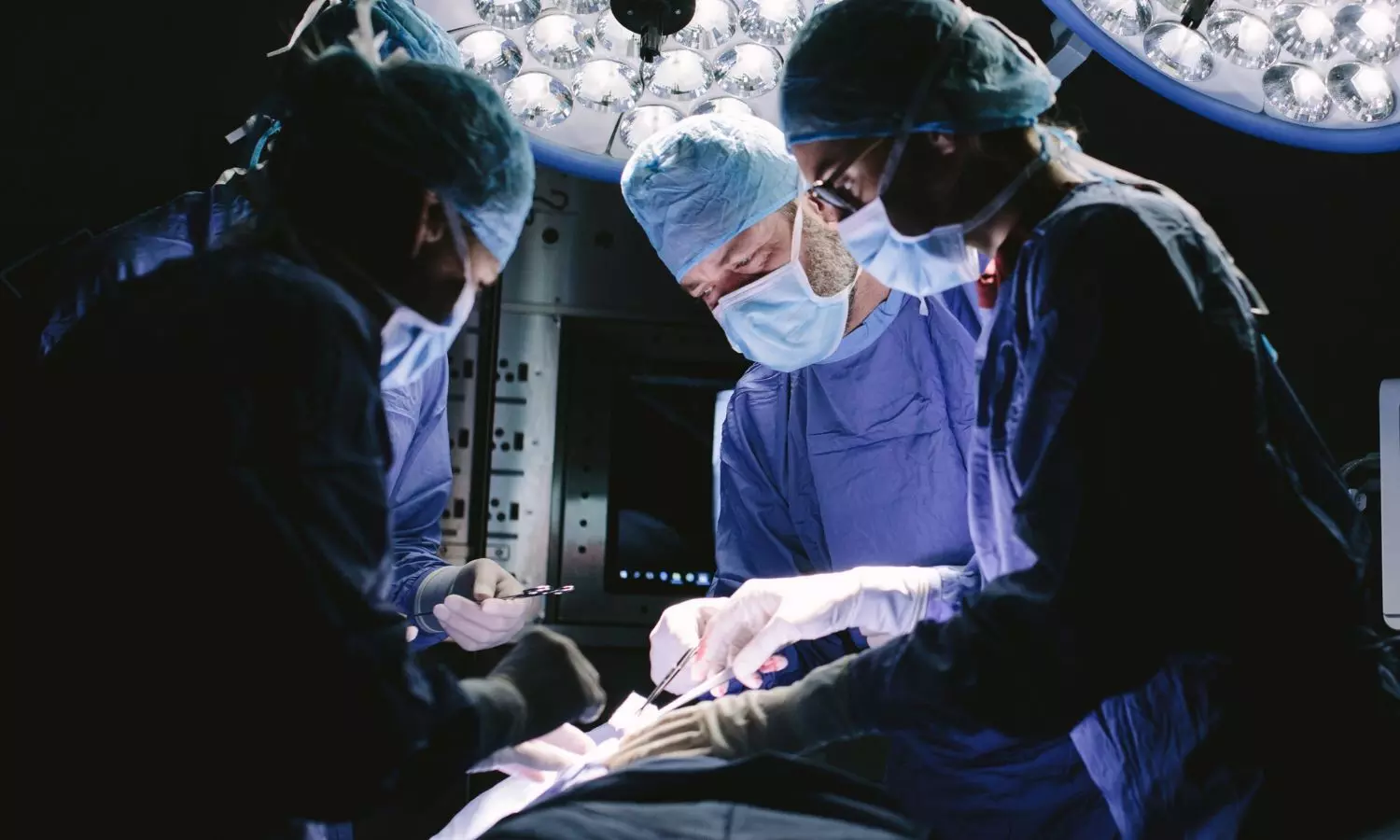Advanced Colon Cancer With Bulky 9×7 cm Tumour Successfully Treated in 42-Year-Old Kazakh Patient at Apollo Spectra

New Delhi: Assilbek Sariyev, a 42-year-old man from Kazakhstan, was suffering from advanced colon cancer that had spread to his lungs and caused a severe intestinal blockage as well. The patient was in a traumatic condition.
On the advice of a family friend, he came to New Delhi, and treatment started at Apollo Spectra Hospital, Delhi. He was first diagnosed with a large caecal tumour measuring 9 × 7 cm, which had already impacted the lungs.
Highly skilled surgeons at the hospital successfully performed a high-risk surgery to save his life. A team of surgeons led by Dr Saurabh Bansal, Senior Laparoscopic and Robotic Surgeon, performed modern minimally invasive techniques, which transformed the results in this very advanced cancer case once considered too risky for surgery.
The case was further complicated by obesity and a high body mass index (BMI), which increases the risk of complications during anaesthesia and recovery. It all began with chemotherapy and immunotherapy, but the patient slowly developed severe abdominal pain due to a small perforation (tear) in the tumour, making emergency surgery the only option.
Explaining the complexity and successful outcome, Dr Saurabh Bansal, Senior Laparoscopic and Robotic Surgeon at Apollo Spectra Hospital, Delhi, said, “It is very challenging to operate on a patient who is suffering from advanced colon cancer, obesity, and adverse effects of prior chemotherapy.
In this case, a laparoscopic approach helped us to achieve the same oncological safety as open surgery but with faster recovery and fewer complications. With precision, planning, and teamwork, we finally transform a high-risk scenario into a positive outcome”.
“The minimally invasive approach also allowed us to remove the affected portion of intestine with radical oncologic clearance while minimising the incision size, risk of infection and postoperative discomfort as well. The procedure lasted around three hours and involved intricate dissection to manage adhesions, chemotherapy-related tissue changes, and limited operating field visibility due to the bulky tumour,” added Dr Bansal.
Despite so many challenges, the surgeons achieved a successful removal of the affected section of intestine with radical oncologic clearance, while minimising the risk of infection and blood loss.
Post surgery, the patient recovered very well, discharging with pain-free walking independently, and tolerating a normal diet. The rapid recovery of the patient reinforces the advantages of advanced laparoscopic surgery, particularly for complex cancer cases, as minimal access cancer surgery provides excellent postoperative outcomes.
As per the National Institute of Health (Gov), Colorectal cancer remains one of the most common gastrointestinal malignancies across the globe, and in India, many of the patients are still at advanced stages due to a delay in diagnosis.
In 2022, India recorded 64,863 cases and 38,367 deaths, with a lower five-year survival rate (around 34.2% for colon cancer and 37.9% for rectal cancer) compared to developed countries.
The team of Apollo Spectra Hospital, Delhi, also emphasised that advanced technology and medical experts play a significant role, while timely medical intervention is a true saviour. Early detection also allows for smaller, safer surgeries, which helps to improve the rate of survival and quality of life as well.


